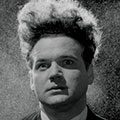“We say this to everyone at the beginning, we say you’re going to see this film before it’s done. You can see it when it can still be changed. We’re going to try to convince you that we need you in this movie; that it’s important for the story that it’s good for society in general to tell this story, and why your part of it is so important. At the end of the day, if I can’t convince you we’ll take you out of the movie.”
– Gordon Quinn, IndieWire
The above quote comes from documentary producer Gordon Quinn, whose career stretches back to the late 1960s and includes such films as Hoop Dreams and Raising Bertie, two longitudinal films with vulnerable subjects. I think it nicely sums up the balancing act that documentary filmmakers have to negotiate between keeping control of their film project and making sure their subjects are happy with their own involvement.
With that in mind, I’ve sketched out a few ideas for an ethics charter that I intend to follow in my own projects:
Informed consent
- Before filming someone, I will explain to them the purpose of the documentary and why I want to talk to them specifically, including how I expect their contribution to be used in the final product.
- I will be honest about my plans for the final product — whether it will be screened publicly, uploaded to the internet, etc.
Interviews
- I will not share my questions with a subject before filming, but if they ask I will share with them the general topics of discussion.
- I will inform the subject that they have control over what they say while on camera. They can stop filming at any time, re-take an answer if they made a mistake, decline to answer any question, etc.
- However, once the interview is over, I take ownership of the footage and the subject does not have the right to direct me in editing decisions, etc (though I will, of course, endeavour to represent them honestly).
Editing
- If I cut an interview for time or rearrange any answers, I will strive to maintain the spirit of what the subject was saying.
- I will give the subject access to the documentary before it is complete, so they can see their contribution in context and see how I have presented them.
- If they have serious concerns about being misrepresented, I’ll work with them to address their concerns.
I really like Terry Gross’s ground rules for interviews, so I have incorporated them into my charter. This is what NPR host Terry Gross tells interviewees before she hits record:
- This isn’t live and isn’t airing today, so avoid saying “yesterday”, “today”, “last week”, etc. Go for absolute dates and times if you can.
- If you get half way through an answer and misspeak or think of a better way to get across what you mean, stop yourself and start the answer again. Just start with a full sentence for the purposes of editing.
- If I get too personal, stop me and we can move on to something else.
- If I get a fact wrong, feel free to interrupt and correct me. I can then fix the mistake and it won’t go to air.
I like these ground rules for two reasons. Firstly, it puts the subject at ease to know that you’re not trying to trick them into saying anything they’ll regret, and they can re-take any answer if they think they’ve made a mistake. But secondly, and most importantly for me, it subtly reminds the subject that their control of the situation is confined only to what they say when they’re in the interview chair, and they shouldn’t expect to be given final approval over your documentary.
